Meet Our New Tutors
Dean’s Update, October 2022
Greetings FCEA community! Mars is moving retrograde through Gemini soon. The passionate planet of action will be in reflective mode. We turn inward to consider how we might bring fresh perspectives to the ways we touch one another, through our voices and our words. Some FCEA students know that I love to think of Gemini like a Cubist painting; each side of the subject is shown simultaneously as we open our minds and hearts to our natural curiosity and learning! Late this month, when stationing retrograde, Mars sits on the FCEA 2nd house cusp and the journey backward into our 1st house makes me think we need to refresh our teaching pool, open up to some new 1st house Gemini leadership in the FCEA classroom. How timely! So, I am thrilled to announce that we have hired three new outstanding tutors to join our growing FCEA team.
Patty Morris-Stebbins, Aubrey Thorne Carey and Ricky Williams began serving as tutors at the end of August. This month, they officially come on board, so expect to see them in several classes in 2023. Let me take a moment to briefly introduce them to you.
Patty Morris-Stebbins
 Patty and I have been blessed to share the love of deep family bonding through Steven’s AP program for many years, so I am thrilled to work closely with her in helping to bring about our educational mission. Patty shared the following brief biography with me. “Patty Morris-Stebbins is New England born and raised, with a deep love of teaching and learning. Having completed two Master’s Degrees, (one in Public Policy and one in Transpersonal Counseling,) twenty years of astrological study, (including almost ten years with Mr. Forrest himself), and 15 years counseling clients, she is excited to bring her knowledge and skills to the FCEA to support others’ connection with the deep material of evolutionary astrology, and is even more excited to learn from students’ own wisdom and knowledge. When not studying/tutoring/counseling astrology, she works full-time as a cancer research administrator and mama to two amazing children, and is perennially seeking ways to connect with spirit through meditation, music, and nature.” Welcome, Patty!
Patty and I have been blessed to share the love of deep family bonding through Steven’s AP program for many years, so I am thrilled to work closely with her in helping to bring about our educational mission. Patty shared the following brief biography with me. “Patty Morris-Stebbins is New England born and raised, with a deep love of teaching and learning. Having completed two Master’s Degrees, (one in Public Policy and one in Transpersonal Counseling,) twenty years of astrological study, (including almost ten years with Mr. Forrest himself), and 15 years counseling clients, she is excited to bring her knowledge and skills to the FCEA to support others’ connection with the deep material of evolutionary astrology, and is even more excited to learn from students’ own wisdom and knowledge. When not studying/tutoring/counseling astrology, she works full-time as a cancer research administrator and mama to two amazing children, and is perennially seeking ways to connect with spirit through meditation, music, and nature.” Welcome, Patty!
Aubrey Thorne Carey
 Aubrey and I have been friends and colleagues for many years as well, learning together and sharing our passion for evolutionary astrology at Steven’s AP over the years. I am so excited to have Aubrey join our team. Here is her brief introduction so you can get to know her. “Aubrey Thorne Carey fell in love with Evolutionary Astrology in 2011 and began Steven Forrest’s Apprentice Program in 2012, completing his Master Certification in 2016. She has a Master of Traditional Chinese Medicine and was an acupuncturist for over a decade before transitioning (with many small detours) to her astrological practice. In her parallel life, Aubrey was with the Groundlings Theater in Los Angeles for eight years, wearing lots of wigs and doing improv weekly, and surprisingly, these improv and comedic skills come in handy regularly while doing astrology consultations! She also trained with Michael Neill in his Supercoach program in 2020, which was life-changing, getting certified as a Transformational Coach, working with a perspective known as “The Three Principles.” When not working with astrology and coaching, Aubrey is doing one of these activities: studying yoga, walking her adorable Potcake (look it up), WhatsApp-ing her 21-year old daughter, having tacos with her husband, needlepointing and listening to audiobooks, or planning one of a hundred possible creative projects.” So multi-talented, Aubrey!
Aubrey and I have been friends and colleagues for many years as well, learning together and sharing our passion for evolutionary astrology at Steven’s AP over the years. I am so excited to have Aubrey join our team. Here is her brief introduction so you can get to know her. “Aubrey Thorne Carey fell in love with Evolutionary Astrology in 2011 and began Steven Forrest’s Apprentice Program in 2012, completing his Master Certification in 2016. She has a Master of Traditional Chinese Medicine and was an acupuncturist for over a decade before transitioning (with many small detours) to her astrological practice. In her parallel life, Aubrey was with the Groundlings Theater in Los Angeles for eight years, wearing lots of wigs and doing improv weekly, and surprisingly, these improv and comedic skills come in handy regularly while doing astrology consultations! She also trained with Michael Neill in his Supercoach program in 2020, which was life-changing, getting certified as a Transformational Coach, working with a perspective known as “The Three Principles.” When not working with astrology and coaching, Aubrey is doing one of these activities: studying yoga, walking her adorable Potcake (look it up), WhatsApp-ing her 21-year old daughter, having tacos with her husband, needlepointing and listening to audiobooks, or planning one of a hundred possible creative projects.” So multi-talented, Aubrey!
Ricky Williams
 And last – but certainly not least! – is Ricky Williams. Ricky and I also met through Steven’s AP and I cherish the times I have gotten to know him better and his lovely wife, Linnea, who is also former AP family. I am super happy to see Ricky join our team of tutors because he seems to be a natural at sharing his love and skills of our most sacred craft. Ricky shared this brief biography so you can get to know him better, “Upon the completion of a successful professional football career, Ricky Williams turned his attention to spiritual exploration and development. A Gemini fueled by a passion for learning, he studies and practices yoga, meditation, astrology, craniosacral therapy, pranic healing and Ayurvedic medicine. During Ricky’s 16 years studying astrology and interpreting birthcharts for his clients, he discovered a teacher in world-renowned evolutionary astrologer Steven Forrest. In 2020, Ricky, Steven and Linnea founded LILA (Sanskrit for “divine play”), a relationship and self-discovery app powered by the spiritual insights offered by an empowering, choice-based form of astrology. Ricky’s greatest love is building transformative businesses with his wife and other like-minded people.” Yay Ricky!
And last – but certainly not least! – is Ricky Williams. Ricky and I also met through Steven’s AP and I cherish the times I have gotten to know him better and his lovely wife, Linnea, who is also former AP family. I am super happy to see Ricky join our team of tutors because he seems to be a natural at sharing his love and skills of our most sacred craft. Ricky shared this brief biography so you can get to know him better, “Upon the completion of a successful professional football career, Ricky Williams turned his attention to spiritual exploration and development. A Gemini fueled by a passion for learning, he studies and practices yoga, meditation, astrology, craniosacral therapy, pranic healing and Ayurvedic medicine. During Ricky’s 16 years studying astrology and interpreting birthcharts for his clients, he discovered a teacher in world-renowned evolutionary astrologer Steven Forrest. In 2020, Ricky, Steven and Linnea founded LILA (Sanskrit for “divine play”), a relationship and self-discovery app powered by the spiritual insights offered by an empowering, choice-based form of astrology. Ricky’s greatest love is building transformative businesses with his wife and other like-minded people.” Yay Ricky!
Please join me in welcoming all three wonderful and talented tutors to our FCEA family. Let’s all work together to make this Mars retrograde period in our school’s 1st house unfold into fresh educational perspectives, new ideas and new energy and passion in teaching and learning. Thank you, Patty, Aubrey and Ricky. And thank you to all our tutors, teachers, students and staff for making our FCEA the best online school possible!



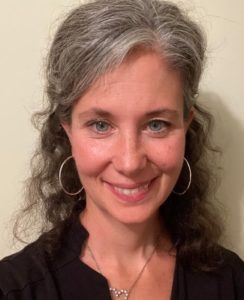 Patty and I have been blessed to share the love of deep family bonding through Steven’s AP program for many years, so I am thrilled to work closely with her in helping to bring about our educational mission. Patty shared the following brief biography with me. “Patty Morris-Stebbins is New England born and raised, with a deep love of teaching and learning. Having completed two Master’s Degrees, (one in Public Policy and one in Transpersonal Counseling,) twenty years of astrological study, (including almost ten years with Mr. Forrest himself), and 15 years counseling clients, she is excited to bring her knowledge and skills to the FCEA to support others’ connection with the deep material of evolutionary astrology, and is even more excited to learn from students’ own wisdom and knowledge. When not studying/tutoring/counseling astrology, she works full-time as a cancer research administrator and mama to two amazing children, and is perennially seeking ways to connect with spirit through meditation, music, and nature.” Welcome, Patty!
Patty and I have been blessed to share the love of deep family bonding through Steven’s AP program for many years, so I am thrilled to work closely with her in helping to bring about our educational mission. Patty shared the following brief biography with me. “Patty Morris-Stebbins is New England born and raised, with a deep love of teaching and learning. Having completed two Master’s Degrees, (one in Public Policy and one in Transpersonal Counseling,) twenty years of astrological study, (including almost ten years with Mr. Forrest himself), and 15 years counseling clients, she is excited to bring her knowledge and skills to the FCEA to support others’ connection with the deep material of evolutionary astrology, and is even more excited to learn from students’ own wisdom and knowledge. When not studying/tutoring/counseling astrology, she works full-time as a cancer research administrator and mama to two amazing children, and is perennially seeking ways to connect with spirit through meditation, music, and nature.” Welcome, Patty!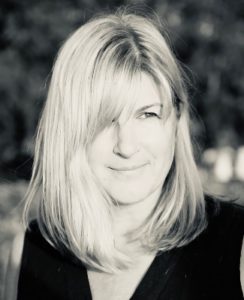 Aubrey and I have been friends and colleagues for many years as well, learning together and sharing our passion for evolutionary astrology at Steven’s AP over the years. I am so excited to have Aubrey join our team. Here is her brief introduction so you can get to know her. “Aubrey Thorne Carey fell in love with Evolutionary Astrology in 2011 and began Steven Forrest’s Apprentice Program in 2012, completing his Master Certification in 2016. She has a Master of Traditional Chinese Medicine and was an acupuncturist for over a decade before transitioning (with many small detours) to her astrological practice. In her parallel life, Aubrey was with the Groundlings Theater in Los Angeles for eight years, wearing lots of wigs and doing improv weekly, and surprisingly, these improv and comedic skills come in handy regularly while doing astrology consultations! She also trained with Michael Neill in his Supercoach program in 2020, which was life-changing, getting certified as a Transformational Coach, working with a perspective known as “The Three Principles.” When not working with astrology and coaching, Aubrey is doing one of these activities: studying yoga, walking her adorable Potcake (look it up), WhatsApp-ing her 21-year old daughter, having tacos with her husband, needlepointing and listening to audiobooks, or planning one of a hundred possible creative projects.” So multi-talented, Aubrey!
Aubrey and I have been friends and colleagues for many years as well, learning together and sharing our passion for evolutionary astrology at Steven’s AP over the years. I am so excited to have Aubrey join our team. Here is her brief introduction so you can get to know her. “Aubrey Thorne Carey fell in love with Evolutionary Astrology in 2011 and began Steven Forrest’s Apprentice Program in 2012, completing his Master Certification in 2016. She has a Master of Traditional Chinese Medicine and was an acupuncturist for over a decade before transitioning (with many small detours) to her astrological practice. In her parallel life, Aubrey was with the Groundlings Theater in Los Angeles for eight years, wearing lots of wigs and doing improv weekly, and surprisingly, these improv and comedic skills come in handy regularly while doing astrology consultations! She also trained with Michael Neill in his Supercoach program in 2020, which was life-changing, getting certified as a Transformational Coach, working with a perspective known as “The Three Principles.” When not working with astrology and coaching, Aubrey is doing one of these activities: studying yoga, walking her adorable Potcake (look it up), WhatsApp-ing her 21-year old daughter, having tacos with her husband, needlepointing and listening to audiobooks, or planning one of a hundred possible creative projects.” So multi-talented, Aubrey!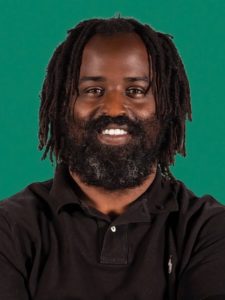 And last – but certainly not least! – is Ricky Williams. Ricky and I also met through Steven’s AP and I cherish the times I have gotten to know him better and his lovely wife, Linnea, who is also former AP family. I am super happy to see Ricky join our team of tutors because he seems to be a natural at sharing his love and skills of our most sacred craft. Ricky shared this brief biography so you can get to know him better, “Upon the completion of a successful professional football career, Ricky Williams turned his attention to spiritual exploration and development. A Gemini fueled by a passion for learning, he studies and practices yoga, meditation, astrology, craniosacral therapy, pranic healing and Ayurvedic medicine. During Ricky’s 16 years studying astrology and interpreting birthcharts for his clients, he discovered a teacher in world-renowned evolutionary astrologer Steven Forrest. In 2020, Ricky, Steven and Linnea founded LILA (Sanskrit for “divine play”), a relationship and self-discovery app powered by the spiritual insights offered by an empowering, choice-based form of astrology. Ricky’s greatest love is building transformative businesses with his wife and other like-minded people.” Yay Ricky!
And last – but certainly not least! – is Ricky Williams. Ricky and I also met through Steven’s AP and I cherish the times I have gotten to know him better and his lovely wife, Linnea, who is also former AP family. I am super happy to see Ricky join our team of tutors because he seems to be a natural at sharing his love and skills of our most sacred craft. Ricky shared this brief biography so you can get to know him better, “Upon the completion of a successful professional football career, Ricky Williams turned his attention to spiritual exploration and development. A Gemini fueled by a passion for learning, he studies and practices yoga, meditation, astrology, craniosacral therapy, pranic healing and Ayurvedic medicine. During Ricky’s 16 years studying astrology and interpreting birthcharts for his clients, he discovered a teacher in world-renowned evolutionary astrologer Steven Forrest. In 2020, Ricky, Steven and Linnea founded LILA (Sanskrit for “divine play”), a relationship and self-discovery app powered by the spiritual insights offered by an empowering, choice-based form of astrology. Ricky’s greatest love is building transformative businesses with his wife and other like-minded people.” Yay Ricky!
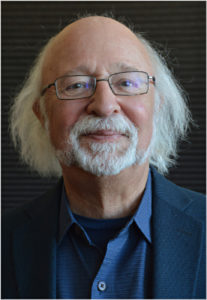
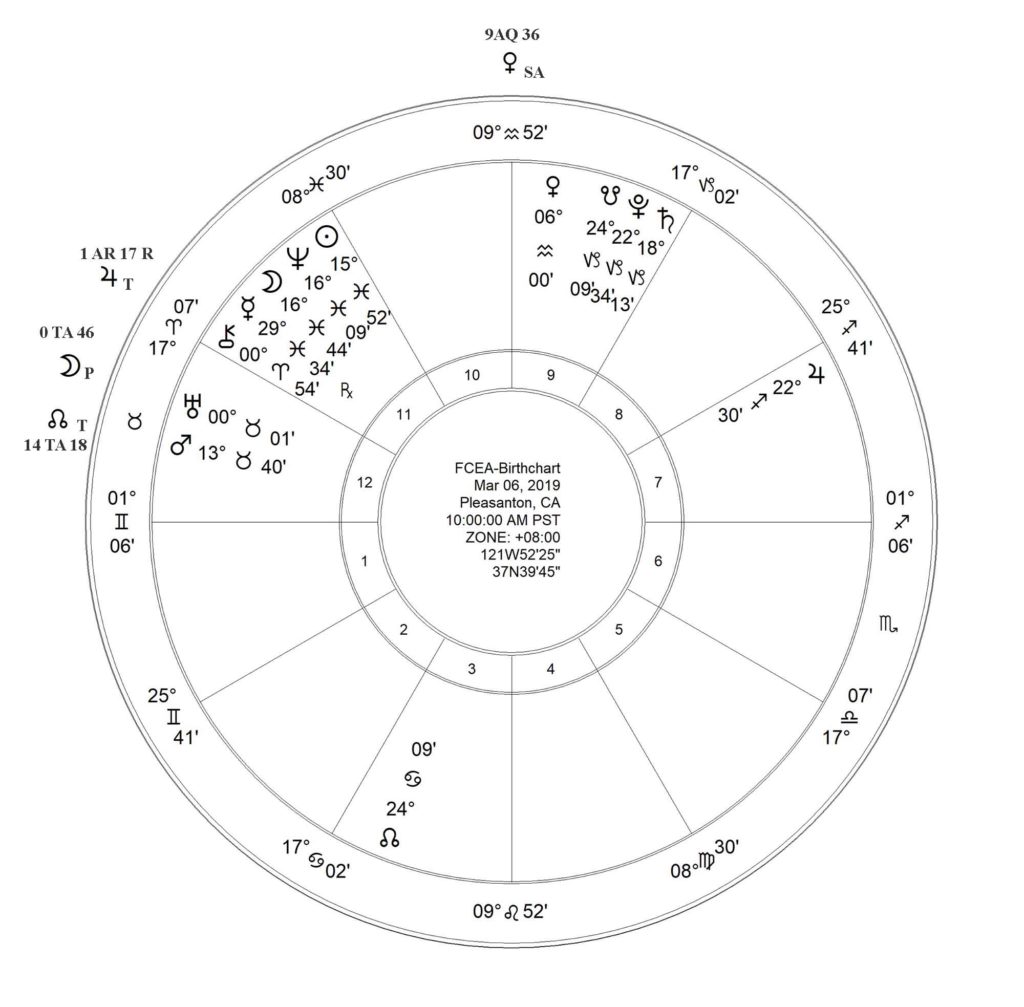
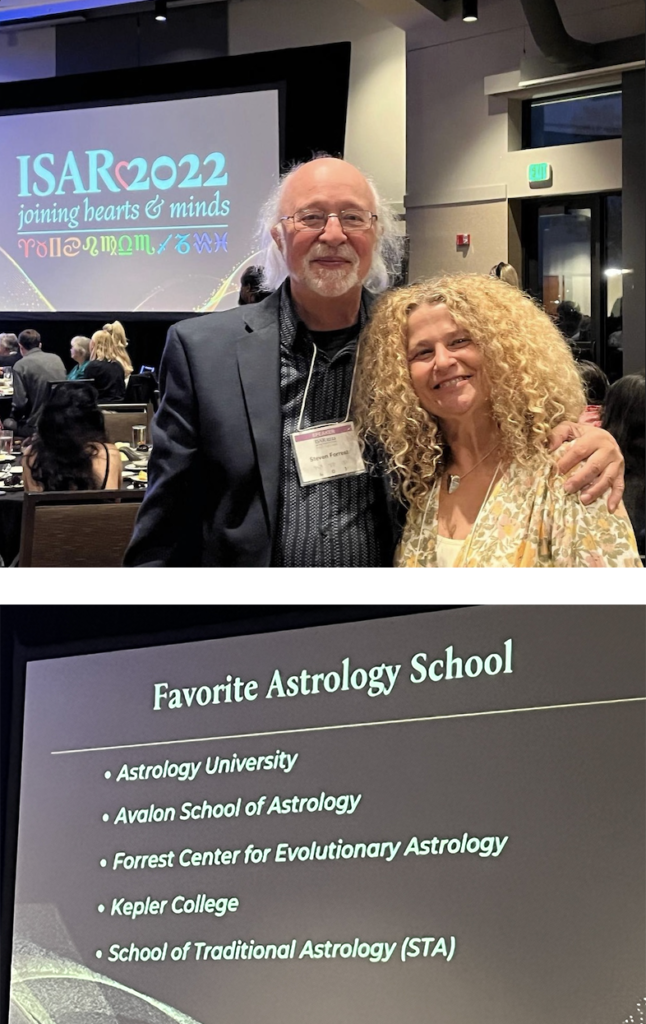
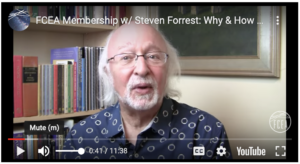
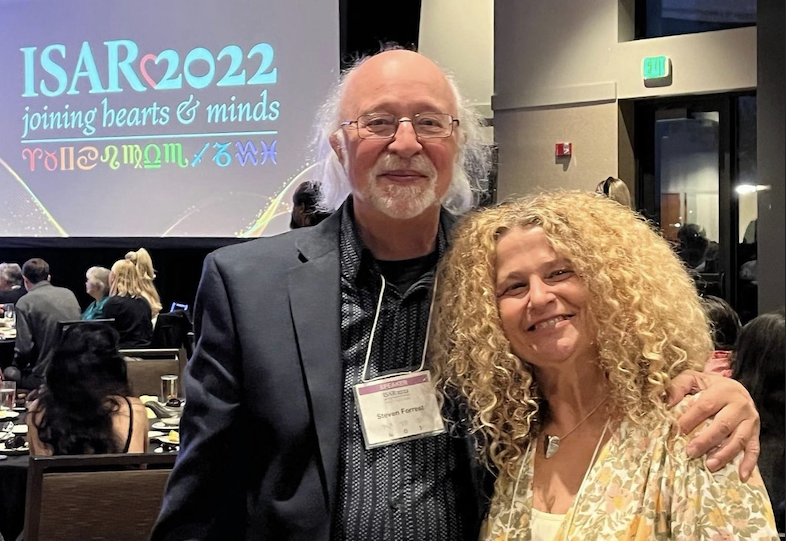
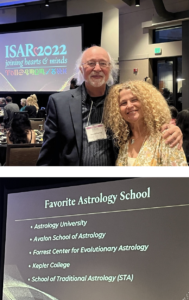 ISAR is the International Society for Astrological Research. What an honor for the FCEA! We were not expecting this recognition at all. What a nice surprise while transiting Uranus and the north node in Taurus formed a lovely trine to Saturn in Capricorn on the 9th house cusp in the school’s birthchart. We were thrilled to be acknowledged by colleagues and the professional astrological community. Congrats FCEA!
ISAR is the International Society for Astrological Research. What an honor for the FCEA! We were not expecting this recognition at all. What a nice surprise while transiting Uranus and the north node in Taurus formed a lovely trine to Saturn in Capricorn on the 9th house cusp in the school’s birthchart. We were thrilled to be acknowledged by colleagues and the professional astrological community. Congrats FCEA!


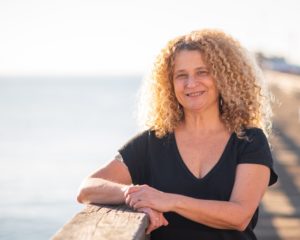
 I also frequently hear from students wanting a summer and holiday recess. Of course! Many take holidays and breaks on their own from classes when needed. But official holiday time is also doable and it makes sense. Since the FCEA opened in 2021, we recognized a break in December and January is a must! This year, final assignments and exams in most fall classes end by late November. Our last course to finish in 2022 will be FCEA 202, ending on December 1st. We will have a Solstice gathering and the last Member Q and A call of the year in early December, so we can wind down the school year by December 9th. The first week of January is Steven’s birthday, so we extended the holiday season through to January 11th. There will be plenty of time for a family vacation, even after New Year’s Day. At the end of 2023, we have built into the calendar a similar break to enjoy the yuletide season and New Year celebrations.
I also frequently hear from students wanting a summer and holiday recess. Of course! Many take holidays and breaks on their own from classes when needed. But official holiday time is also doable and it makes sense. Since the FCEA opened in 2021, we recognized a break in December and January is a must! This year, final assignments and exams in most fall classes end by late November. Our last course to finish in 2022 will be FCEA 202, ending on December 1st. We will have a Solstice gathering and the last Member Q and A call of the year in early December, so we can wind down the school year by December 9th. The first week of January is Steven’s birthday, so we extended the holiday season through to January 11th. There will be plenty of time for a family vacation, even after New Year’s Day. At the end of 2023, we have built into the calendar a similar break to enjoy the yuletide season and New Year celebrations.
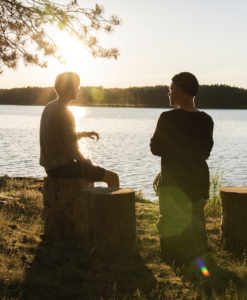 Personally, I felt better offering the follow-up, so that’s what I did. And some of those clients came back for further “talking cure” sessions. Soon enough, I was doing a kind of ongoing counseling work of a sort that was probably indistinguishable from psychotherapy in any meaningful way – other than the fact that, technically, there wasn’t actually a psychotherapist in the room, that is. By the time I left North Carolina, about one-third of my practice actually took that form. I loved the depth and humanness of it. In the process, I learned a lot, much of which fed back into my astrological understanding. People expressed gratitude. I saved a marriage or two, and I talked more than one person “off the ledge” – and no one jumped off it as a result of my ministrations either, I am happy to say.
Personally, I felt better offering the follow-up, so that’s what I did. And some of those clients came back for further “talking cure” sessions. Soon enough, I was doing a kind of ongoing counseling work of a sort that was probably indistinguishable from psychotherapy in any meaningful way – other than the fact that, technically, there wasn’t actually a psychotherapist in the room, that is. By the time I left North Carolina, about one-third of my practice actually took that form. I loved the depth and humanness of it. In the process, I learned a lot, much of which fed back into my astrological understanding. People expressed gratitude. I saved a marriage or two, and I talked more than one person “off the ledge” – and no one jumped off it as a result of my ministrations either, I am happy to say.
 Summertime here in California always provides me a time to take stock of the bigger picture of what I am working and striving for; a good time to reassess where our school is headed and what structural changes we may need to make in the months ahead. The FCEA is growing. I am in the process of training three new tutors this summer. We look forward to welcoming a brand-new cohort of 100-level students in the fall. What needs to change to best accommodate our growing student body, diverse in levels of knowledge and practical skills?
Summertime here in California always provides me a time to take stock of the bigger picture of what I am working and striving for; a good time to reassess where our school is headed and what structural changes we may need to make in the months ahead. The FCEA is growing. I am in the process of training three new tutors this summer. We look forward to welcoming a brand-new cohort of 100-level students in the fall. What needs to change to best accommodate our growing student body, diverse in levels of knowledge and practical skills? 
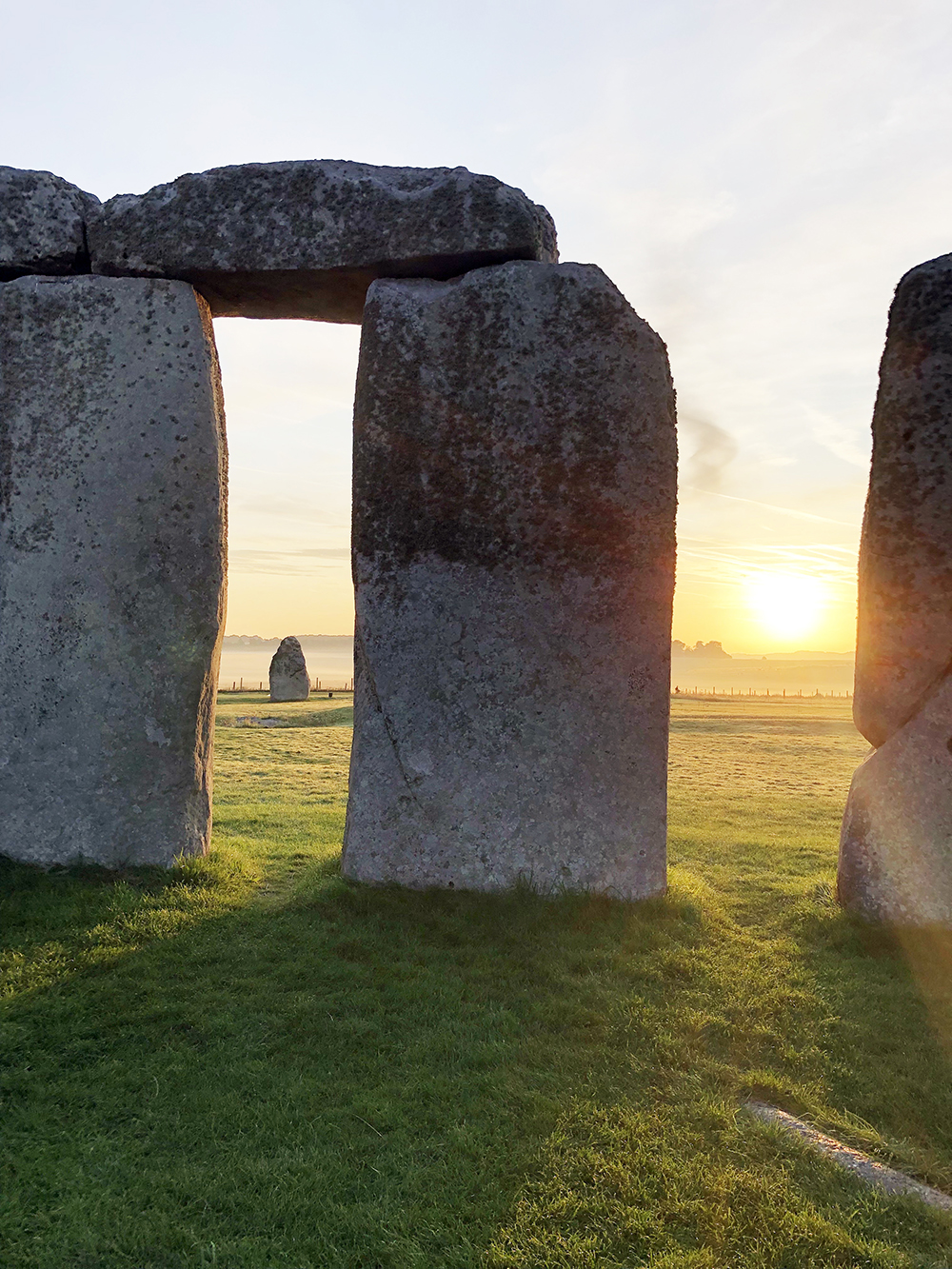
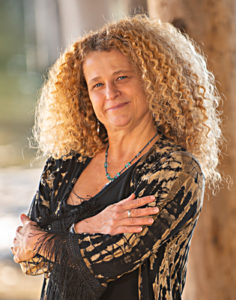
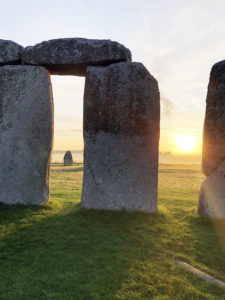 We come together to learn and share our passion in a sacred celestial art based upon the sky and the changing seasons. We are also a solstice community, a circle, a family. Before I dive into the main topic of my Dean’s update this month, I want to thank Teal Rowe, our dear tutor and friend, who is leaving our solstice circle, our FCEA community. Like we so often hear, running a school really does “take a village,” and I am so grateful for Teal’s love, hard work and commitment to help birth the FCEA. Teal has been a constant source of emotional support and guidance through recent years of developing the FCEA. We could not have done this work without her. She will be sorely missed. We wish her all the best in her future endeavors!
We come together to learn and share our passion in a sacred celestial art based upon the sky and the changing seasons. We are also a solstice community, a circle, a family. Before I dive into the main topic of my Dean’s update this month, I want to thank Teal Rowe, our dear tutor and friend, who is leaving our solstice circle, our FCEA community. Like we so often hear, running a school really does “take a village,” and I am so grateful for Teal’s love, hard work and commitment to help birth the FCEA. Teal has been a constant source of emotional support and guidance through recent years of developing the FCEA. We could not have done this work without her. She will be sorely missed. We wish her all the best in her future endeavors! 


 Of all the forms that astrology takes, it is we evolutionary astrologers who are probably the most unabashedly “spiritual” in our orientation. Put simply, we see our existential and psychological lives – the ego’s life, in other words – as reflections of far deeper journeys unfolding against a background of many lifetimes. We use that metaphysical language – and, generally, the clients we attract are people who are looking for that kind of broad perspective too. How can we give them what they need? How can we do our best work? How can we really help them? After all, we are employing the same basic tools that the silliest Internet pop astrologer is using – signs, planets, houses. Astrology is indeed about tuning up the old ego, and like that book editor, we can “expect it will remain that way.” Ego is the focus, and yet we are aiming for something beyond it. It’s a pickle, for sure.
Of all the forms that astrology takes, it is we evolutionary astrologers who are probably the most unabashedly “spiritual” in our orientation. Put simply, we see our existential and psychological lives – the ego’s life, in other words – as reflections of far deeper journeys unfolding against a background of many lifetimes. We use that metaphysical language – and, generally, the clients we attract are people who are looking for that kind of broad perspective too. How can we give them what they need? How can we do our best work? How can we really help them? After all, we are employing the same basic tools that the silliest Internet pop astrologer is using – signs, planets, houses. Astrology is indeed about tuning up the old ego, and like that book editor, we can “expect it will remain that way.” Ego is the focus, and yet we are aiming for something beyond it. It’s a pickle, for sure.